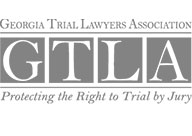Milton Wrongful Death Lawyer: A Guide for Your Family
When you lose a family member because someone else was careless or negligent, the grief is only the beginning. How do you deal with the financial fallout and move forward with your family?
In Georgia, the law provides an answer. A wrongful death claim is a civil action that allows your family to pursue financial compensation for the loss of your loved one. It is a tool for securing your family’s future and ensuring the person or company at fault answers for the harm they caused.
If you have questions and are unsure where to turn, our compassionate Milton wrongful death lawyer is here to help. Call North Atlanta Injury Law for a no-cost consultation at (770)988-4000.
Milton Wrongful Death Guide
- Milton Wrongful Death Lawyer: A Guide for Your Family
- Key Takeaways for Milton Wrongful Death Claims
- Why Families in Milton Trust North Atlanta Injury Law
- What Is a Wrongful Death Claim in Georgia?
- What Does “Full Value of Life” Really Mean?
- How Does Georgia’s Fault Law Impact Your Claim?
- The Statute of Limitations: An Unforgiving Deadline
- How Is a Wrongful Death Settlement Divided in Georgia?
- A Word on Dealing with Insurance Companies
- Where Fatal Accidents Happen Around Milton
- Steps Your Family Should Take to Support the Wrongful Death Claim
- Frequently Asked Questions About Milton Wrongful Death Claims
- Let Us Help Your Family Find a Path Forward
Key Takeaways for Milton Wrongful Death Claims
- Two distinct claims may be available. Your family can pursue both a wrongful death claim for the full value of life and an estate claim for medical bills, funeral costs, and suffering before death.
- Georgia law has strict deadlines and liability rules. You generally have two years to file. If your loved one was found 50% or more at fault, your family cannot recover compensation.
- Settlements are divided in a specific order by law. Spouses and children share compensation based on Georgia’s formula. The estate claim is separate and distributed through probate.
Why Families in Milton Trust North Atlanta Injury Law
You need a firm that understands Georgia’s wrongful death laws and, just as important, recognizes the personal weight your family is carrying.
Without experienced legal guidance, families might miss strict filing deadlines, barring them from recovery forever. They might accept a quick settlement from an insurance company that covers immediate expenses but leaves a lifetime of loss unaddressed.
At North Atlanta Injury Law, our practice is built to support families like yours. We only represent individuals, never insurance companies.
- A Record of Success: Our founding attorney, Travis Little, was part of a team that secured a landmark $43.5 million wrongful death verdict in Georgia. We have a history of taking on large corporations like Walmart, Coca-Cola, and Allstate—and succeeding.
- Personalized Attention: We make sure you understand every step of the process. Our client reviews consistently point to our commitment to clear, consistent communication and treating each family’s case with the focus it requires.
- Recognized for Excellence: Travis Little holds an “AV – Preeminent” peer rating from Martindale-Hubbell and a perfect 10.0 Avvo rating, reflecting a deep commitment to professional and ethical standards.
- Local to Milton: Our principal office is at 12610 Crabapple Road, Suite 201 Milton, GA 30004, just a short drive away from Crabapple Chase Tennis Courts. We proudly serve the Milton community and understand the legal landscape of North Fulton County.
- Hablemos Español: Founder Travis Little is fluent in Spanish.
What Is a Wrongful Death Claim in Georgia?
A wrongful death claim is a civil lawsuit filed when a person dies as a result of another’s negligence, recklessness, or intentional act. Simply put, the claim exists because the person who passed away would have had a valid personal injury case if they had survived.
Who Can File a Wrongful Death Claim?
Georgia law sets a specific order of priority for who is eligible to bring a claim. This hierarchy is as follows:
- The Surviving Spouse: They have the primary right to file. If there are also surviving children, the spouse acts as their representative.
- Surviving Children: If there is no surviving spouse, the children may file the claim.
- Surviving Parent(s): If the deceased has no spouse or children, the right passes to their parents.
- The Personal Representative of the Estate: If none of the above family members exist, the administrator of the deceased’s estate may file the claim.
There Are Actually Two Different Claims. What Do They Cover?
When a family pursues a wrongful death action in Georgia, they are typically filing two separate but related claims that cover different types of losses.
- The Wrongful Death Claim: This is brought by the family members to recover the “full value of the life of the decedent.” This is a unique concept in Georgia law that measures life from the perspective of the person who died. It includes both tangible and intangible losses.
- The Estate Claim: This is filed by the estate’s representative to recover losses the deceased person incurred before death. This claim covers things like medical bills from the final injury, funeral and burial expenses, and any conscious pain and suffering they experienced.
What Kinds of Events Lead to Wrongful Death Claims?
- Motor Vehicle Accidents: Collisions caused by distracted, impaired, or speeding drivers are a frequent source of these claims.
- Medical Malpractice: Fatal errors made by doctors, surgeons, or hospitals, such as a misdiagnosis or medication mistake, could form the basis of a claim.
- Dangerous Premises: Property owners have a duty to keep their premises safe. When they fail, and a hazardous condition causes a fatal accident, they could be held responsible.
- Defective Products: A flawed auto part, a dangerous medical device, or an unsafe consumer product may all lead to a claim against the manufacturer or designer.
- Workplace Accidents: While workers’ compensation typically covers on-the-job deaths, a wrongful death claim may be possible against a negligent third party who was not the employer.
What Does “Full Value of Life” Really Mean?
Georgia law defines compensation in a unique way. Instead of only calculating what the family lost, the law seeks to measure the value of the life from the perspective of the person who is gone. This “full value of life” is made up of two parts.
- Economic value: This includes all the future income, benefits, and retirement savings the person would have earned. It also includes the value of services they provided, like childcare, home repairs, or managing family finances. An economist may be hired to project these financial contributions over a natural lifespan.
- Intangible value: This is the part that truly speaks to the person’s life. It represents the joy of living, the relationships they cherished, the hobbies they pursued, and the experiences they would have had. There is no formula for this. Our job is to tell the story of your loved one’s life to a jury, showing them everything the world lost when that life was cut short.
In some cases where the at-fault party’s actions were especially reckless, punitive damages may also be awarded. These are not meant to compensate the family but to punish the wrongdoer and discourage others from similar behavior.
How Does Georgia’s Fault Law Impact Your Claim?
What if the other side argues your loved one was partially to blame for the accident? Georgia uses a legal rule known as “modified comparative negligence.”
This means that if a jury determines your loved one was partially at fault, your family’s compensation will be reduced by that percentage. For example, if they were found 10% at fault, the final award would be reduced by 10%. However, if your loved one is found to be 50% or more at fault, your family is prevented from recovering any compensation at all.
Insurance companies conduct thorough investigations to find any evidence they can use to shift more blame onto your loved one. Our role is to build a strong case to ensure no blame is unjustly placed on them.
The Statute of Limitations: An Unforgiving Deadline
In Georgia, your family generally has only two years from the date of your loved one’s death to file a wrongful death lawsuit. This deadline is called the statute of limitations.
If you miss this deadline, the court will almost certainly dismiss your case, and your family will lose the right to pursue compensation forever.
This timeline could be even shorter and more complicated in certain situations such as:
- Claims Against Government Entities: If the claim is against a city, you must provide a formal notice of your claim (an “ante litem notice”) within just six months. For claims against a county or the state, the deadline is twelve months.
- Criminal Proceedings: If a criminal case is pending against the person who caused the death (like a DUI), the two-year clock on the civil claim may be paused until the criminal case is finished.
How Is a Wrongful Death Settlement Divided in Georgia?
If the deceased is survived by both a spouse and children, the proceeds are divided among them. However, the law mandates that the surviving spouse must receive at least one-third of the total recovery, no matter how many children there are.
For example, if there is a spouse and three children, the spouse gets one-third, and the remaining two-thirds is split equally among the three children.
If there is no surviving spouse, the settlement is divided equally among the children. If there is a spouse but no children, the spouse receives the entire amount. This distribution applies to the wrongful death claim for the “full value of life.” The funds recovered by the separate estate claim are used to pay the estate’s debts, and any remainder is distributed according to the deceased’s will or state law.
A Word on Dealing with Insurance Companies
Shortly after a fatal accident, you will likely hear from an insurance adjuster for the at-fault party. Remember, insurance companies are businesses that must balance paying claims with making a profit. This creates a conflict of interest from the start.
- You Don’t Have to Give a Recorded Statement: The adjuster may ask for a recorded statement. You are not required to provide one. These recordings are often used to look for inconsistencies or statements that could be twisted to assign blame to your loved one. It is best to let an attorney handle all communications.
- Be Skeptical of Early Offers: An insurer might make a quick settlement offer before the full, lifetime financial impact of your loss is calculated. Accepting an early offer closes the case for good, preventing you from seeking fair compensation later.
- The Process is a Marathon, Not a Sprint: The claims process is filled with paperwork and investigation. It is designed to be slow and tedious. It is easy to get frustrated as bills pile up, which tends to pressure families into accepting a low offer. Having a legal team manage this for you removes that burden.
Where Fatal Accidents Happen Around Milton
Certain roadways in North Fulton County and the surrounding metro area are known for their risks. As a community blending suburban and rural roads, Milton presents unique driving challenges.
Major Commuter Routes: Heavy traffic on highways like GA-400, I-75, and I-285 contributes to a high number of serious collisions. In fact, Fulton County consistently has the highest number of motor vehicle crash fatalities of any county in Georgia, partly due to the sheer volume of traffic.
Local Roads and Intersections: Studies have identified several of the state’s most dangerous road stretches in the Atlanta metro area, including parts of I-20, I-285, and Old National Highway. Hazards are frequently found at:
- Intersections with poor visibility or complex traffic patterns.
- High-speed highways with sudden congestion.
- Winding rural roads that lack proper lighting or shoulders.
Steps Your Family Should Take to Support the Wrongful Death Claim
While your attorney handles the legal work, you should take a few steps at home to help build a strong foundation for your family’s case.
- Gather Key Documents: Collect your loved one’s death certificate, birth certificate, recent tax returns, and pay stubs. These documents help establish the financial losses.
- Stay Off Social Media: Do not post about the accident, your grief, or any legal action online. Insurance companies monitor social media for posts that could be taken out of context and used to weaken a claim.
- Document the Impact: Keep a private journal about how your family’s life has changed. Write down the daily challenges you face and the ways your loved one’s absence is felt. This could become a powerful tool for demonstrating the intangible value of their life.
- Direct All Communication to Your Lawyer: Let your attorney be your voice. Send all calls and letters from insurance companies or the other party’s representatives directly to your legal team. This protects your rights at every turn.
Frequently Asked Questions About Milton Wrongful Death Claims
What is the difference between a wrongful death lawsuit and a criminal case?
A criminal case is brought by the state (through a prosecutor) to punish someone for breaking the law, with penalties like fines or jail time. A wrongful death lawsuit is a civil action brought by the family to recover financial compensation for their losses. The two cases are completely separate and could happen at the same time.
How long will a wrongful death case take?
The timeline depends on the details of the case. Some claims are settled through negotiation in a matter of months. However, if a case involves disputed facts or requires a full trial, it could take a year or more to resolve.
Does our family have to go to court?
Most wrongful death claims are settled out of court. Insurance companies and defendants are often motivated to settle to avoid the uncertainty and expense of a trial. However, we prepare every case as if it will go to trial. This ensures we are in the strongest possible negotiating position to secure a fair offer for your family.
What if the at-fault driver was uninsured?
If the responsible driver has no insurance, you may still be able to recover compensation through your own family’s auto insurance policy. Uninsured/Underinsured Motorist (UM/UIM) coverage is designed for this exact situation. It allows you to file a claim with your own insurer to cover the losses caused by the uninsured driver.
Is the settlement money taxable?
Generally, no. According to the Internal Revenue Service (IRS), compensation from a wrongful death settlement for personal physical injuries is not considered taxable income. However, if the taxpayer claimed a deduction in a prior tax year for medical treatment related to the injury, the settlement may be subject to federal income tax. Additionally, any portion of a settlement specifically awarded for punitive damages or interest accrued on the settlement may be taxable.
Let Us Help Your Family Find a Path Forward
The legal road after losing a loved one is difficult, but you do not have to walk it alone. The team at North Atlanta Injury Law is here to manage the legal process so your family can focus on healing. An experienced Milton personal injury lawyer from our team will stand by your side every step of the way.
For a compassionate and confidential case review, call us today at (770)988-4000.
North Atlanta Injury Law PC – Milton Office
Address: 12610 Crabapple Road Suite 201 Milton, GA 30004
Contact No: (770)988-4000








